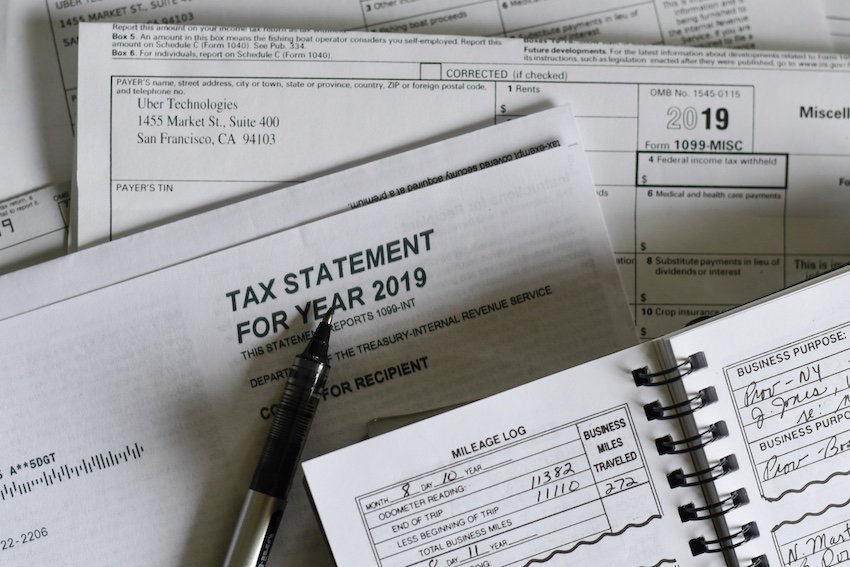There are many benefits to living abroad. Exploring a different culture on a day-to-day basis. Challenging yourself to try new foods and learn another language. Making new friends and getting out of your comfort zone. And, if you’re a United States citizen, maybe one that you didn’t expect: not being required to file a state income tax return.
Now, as a former tax attorney who worked for the IRS for twenty years, I want readers to understand that U.S. citizens who live and work overseas are still required to file a U.S. tax return to report their worldwide income. That’s just the way the U.S. tax system works. No matter where you earn your salary or self-employment income, receive interest or dividends, own and rent property or hit it big on the lottery, the income should go on your Form 1040, U.S. Individual Income Tax Return.

No kidding, I had a friend, Rich, who won ten grand at a slot machine in a casino in the Bahamas. He had to include it on his U.S. tax return. And because he lived in New Jersey, he had to include it on his state income tax return as well. Easy come, easy go, as they say.
I live in Mexico, can I stop filing a state tax return?
States generally tax state residents on all of their income, no matter where it is earned. Vermont is known as the Green Mountain State, but if you lived there, you might also call it the High Income Tax State as its personal income tax rate can be as steep as 8.75%. In New Jersey, the income tax rate checks in at 10.75%, while Oregon isn’t far behind at 9.9%. From sea to shining sea indeed.
So how does one get out of paying state income tax? Nine U.S. states do not have an income tax. Those states are Alaska, Florida, Nevada, New Hampshire, South Dakota, Tennessee, Texas, Washington and Wyoming. If you don’t want to move to one of those places, move overseas.
But does living in Mexico mean that I don’t have to file a state income tax return? As stated earlier, states tax their residents, and the most common way to be a state resident is to live in the state. For tax purposes, however, residency means more than just physical presence.
For example, New Jersey, in addition to physical presence, determines residency by looking at whether you have a domicile in the state. New Jersey defines your domicile as the place you consider your permanent home; that is, the place you intend to return to after a period of absence, such as a vacation, temporary work assignment or for educational leave like time spent at college. Because my friend Rich was only vacationing in the Bahamas when he made that lucky pull on the slot machine, he hadn’t given up his New Jersey residency.

I won’t break down every state’s definition of residency and domicile, but the majority of them define the terms similarly: as your true, fixed and permanent home from which, whenever absent, you intend to return. Thus, based on the standard that you can be physically present in one place and still have a domicile in another, your intent becomes paramount.
Location, location, location and intention, intention, intention
I began to prepare individual income tax returns when I moved to Mexico. One of my first clients had continued to file North Carolina state tax returns even though she had not lived there — in fact, had not lived in the U.S. — for the previous five years. When I asked her if she intended to go back to North Carolina, she said “No way!”
She thought I was the smartest person in the world when I helped her file amended state tax returns as a nonresident and secure a refund of nearly $700.
What if you aren’t as certain as she was that you don’t intend to move back to the U.S.? For example, what if you have a digital nomad visa that expires after a year? Or you decide not to sell your U.S. home in case your move overseas doesn’t work out? Or you just really, really like Montana and write into your will that you want your ashes scattered from the top of Granite Peak? Does that mean you intend to return and still have a tax domicile in Montana?
Look at it this way: it isn’t brain surgery, it’s tax law. While screwing up in either can get you in trouble, in tax law, you can take positions based on reasonable facts and circumstances that you wouldn’t take if you had just scrubbed in and were holding a scalpel.

The advice I give to clients is this: if 1) you intend to abandon your old domicile in a state and take actions consistent with that intent, such as actually moving out of that state; 2) you intend to acquire a new domicile and take actions consistent with that intent, such as renting a house in Mexico; and 3) you are physically present in your new house in Mexico for the majority of your year, then you have changed your domicile and are no longer a resident of the U.S. state that you left.
For example, my wife and I lived and worked in Virginia for 20 years. During that time we filed a state income tax return as residents and paid income tax to Virginia on our wages, investment income and bank account interest.
We left our jobs and moved to Mexico in 2018. We didn’t intend to come back to Virginia, but there was an element of uncertainty to the move. In case things didn’t work out, we decided to rent our house instead of sell it. We signed a year-long lease on a house in Mexico and only traveled back to the U.S. for family visits. We put our kids in school in Mexico. We ran a business from our foreign address. In my opinion, these facts established our intent to abandon our Virginia domicile.
Generally, if you are not a resident of a state, you only have to pay state tax on income earned from sources within that state. This means that only income earned from a job or business performed in the state, or from rental property located in the state, is taxed by the state. Since the only income we had that was Virginia source income was the rental income from our house, the nonresident income tax return I filed with the state only included that income. I left off the income we earned from the business we ran in Mexico, as well as our investment income and bank interest. This significantly reduced our Virginia tax bill.
What if we only planned to be overseas for as long as it took for our kids to graduate high school and then planned to move back? I would have taken the same position regarding our state residency. So long as we weren’t using our Virginia house as our home — in other words, going back and forth there during the year — and we lived and worked outside of Virginia, we had given up our residency.
What if we were only overseas for one year on a digital nomad visa? This is a little trickier. The time period is shorter and it could be viewed as a temporary absence. However, given that we had moved out of our Virginia home for the entire year and enrolled our children in school, my opinion is that it is reasonable to say that we established a new domicile. In particular, the fact that we rented our Virginia house for the year and signed a year lease in Mexico established our intent to be gone for at least one year. My advice to anyone in this situation is to talk with your tax professional about your specific facts and circumstances.

State-issued driver’s licenses and the right to vote
People who no longer reside in a given state but who continue to file state tax returns often give me two reasons for doing so. The first is that they have a drivers’ license from the state. The second is that they want to continue to vote in U.S. and state elections.
There are good reasons to hang onto your state-issued license when you move, but there is no correlation between having a state driver’s license and the requirement to file a state income tax return. States don’t require that you turn in your license when you move to another state, although your new state may prefer you get a license issued by it within a reasonable amount of time..) While having a state-issued driver’s license might be evidence that you intend to return to the state, other factors discussed above can outweigh it.
In terms of voting rights, under the Uniformed and Overseas Citizens Absentee Voting Act, if you were eligible to vote when you were a resident in the U.S., you are eligible to vote if you live outside the U.S. There is no requirement to maintain residency or own property in the U.S. in order to vote in Federal elections. For voting purposes, your voting residence address would continue to be the last home where you actually resided in the U.S.
You may also continue to vote for state and local offices, such as governor, state legislator, county clerk, mayor, etc. Many states even allow U.S. citizens who have never lived in the U.S. to register to vote based on their parents’ last U.S. voting residence address.
For nonpartisan information pertaining to each U.S. state’s requirements, visit the website of the Overseas Vote Foundation. The Federal Voting Assistance Program website has information about how you can register with local election officials in your state of voting residence and request an absentee ballot.
There is one benefit to maintaining state residency even if you live overseas. When it came time for my daughter to apply to college, I had been filing Virginia nonresident tax returns for years. We couldn’t fake Virginia residency at that point. In my haste to avoid paying state tax, I blew a chance to take advantage of in-state tuition rates. Fortunately, my daughter didn’t want to go to any of the Virginia schools, but my failure to consider that she might is evidence that, despite what my client thought, I am not the smartest man in the world. In case you were wondering.
Paul Carlino is an attorney living in San Miguel de Allende and the founder of Pickleball Mexico. He writes for Mexico News Daily.
